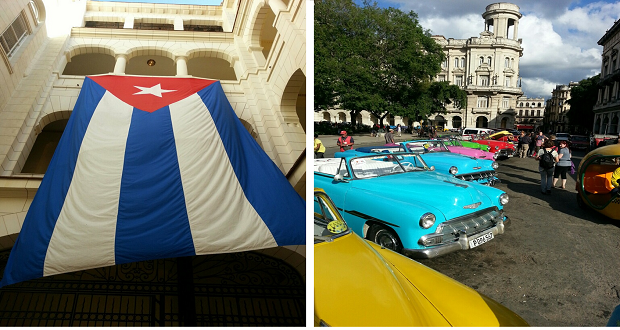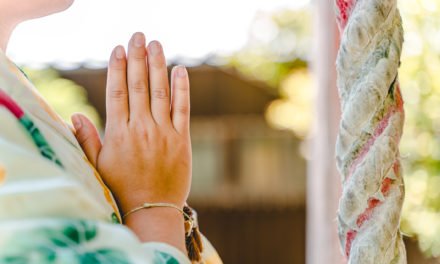
Photos courtesy of Travis Jones
If you are a drinker, you know that a Cuba Libre is the name for a rum and coke—a cocktail with a long history tied to Cuba’s production of sugar cane and rum. Legend has it that early drinkers would chant “Cuba Libre” (Free Cuba!) in honor of soldiers who chanted the same during the Cuban revolution. Like the drink, all things seem to point to Cuba’s deeply political culture. The air is thick and heavy with the weight of a complicated history that is in your face—and not hidden in a book. Where other cultures idolize and celebrate gods and leaders of millennia and centuries past, Cuba’s memorialized heroes walked just decades ago.
I just returned from visiting Cuba for the first time several weeks ago. I have now traveled to over thirty countries and can easily say that Cuba tops the list (granted, the last country I visit is usually my favorite, but Cuba left an impression on me that I won’t soon forget). And to top it off, I was there during the historic announcement by Obama and Castro on (hopefully) improved relations between the US and Cuba. I realize the recent discussions about Cuba and the US are politically charged and not without controversy. It’s well beyond the aim of this post to dive into some of the debates—not to mention many of them are well above my head—so I wanted to share some brief thoughts I had as I processed my trip.
One of my favorite travel quotes is by Mark Twain who said,
“Travel is fatal to prejudice, bigotry, and narrow-mindedness, and many of our people need it sorely on these accounts. Broad, wholesome, charitable views of men and things cannot be acquired by vegetating in one little corner of the earth all one’s lifetime.”
Anytime I travel I want to return a more charitable, open-minded, and less prejudiced person than when I left—and Cuba proved to be the perfect place to help me ask myself some tough questions. I didn’t know a lot of the history between the US and Cuba before going but friends and family were quick to offer their own (misinformed) advice–“Don’t get killed”, “stay out of prison”, “Are you sure it’s safe?!”, “But it’s a Communist country” and my favorite, “if you don’t come back in two weeks I’m calling Obama.” As a seasoned traveler, I get this type of reaction a lot, but it was heightened for Cuba.
You already know the rest of the story. Cuba was nothing like what anyone said. I always felt safe and the Cubans I met were thrilled to find out I was from the States (and to ask me if I was from Miami). As a traveler to fellow travelers my advice is simple: go! The culture is widely diverse with roots reaching back to the native Taino, Spain, Africa and the Caribbean. Music is everywhere. Live bands and dancers fill the streets with salsa fused with African beats. There are coffee and cigar tours, museums of the revolution, and jaw dropping beaches in every direction. But if you travel to learn, Cuba’s culture has riches that are more fulfilling than the most pristine beach. With an open mind you will wrestle with new ways to think about patriotism, freedom, nationalism and being a global citizen. Cuba will not leave with you easy answers, but you will leave asking better questions.
When I got back to the States I couldn’t wait to share my excitement about Cuba with family and friends. Unfortunately, I was met with the same removed responses that sent me off. I wanted to talk about the actual people I met, the conversations I had, and the places I saw. But the media had already created a conversation around Cuba that was mostly political in nature. I wanted to tell people about the 75-year-old Daisy who hosted me, who cried and danced for hours about the possibility to visit distant relatives and use “twitty” (her translation) and Facebook one day. But instead conversations turned to dictators, communism, capitalism, and immigration. As a sociologist, I’m absolutely interested in these debates. But as a traveler, and a person, I want to have them in light of the actual people who embody and live behind the big ideas we talk about on the news and in classrooms. This is what Mark Twain meant when he said travel is fatal to narrow-mindedness.
It looks like the conversation about the US and Cuba is just getting started and will likely be a political point in future elections, but I hope the conversation will include the faces and names of the people behind such detached concepts like socialism, capitalism, immigration, and communism. Cuba is a complex place with a complicated history. Like all places, there is the good, the bad, and the ugly. But Cuba is rare in that questions of freedom and equality have always been at the heart of their culture—for better and worse. I, for one, am hopeful that the US-Cuba relationship is bright—Cuba Libre!


















